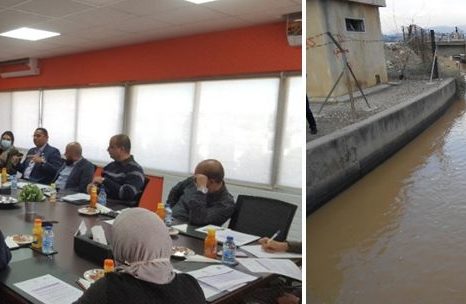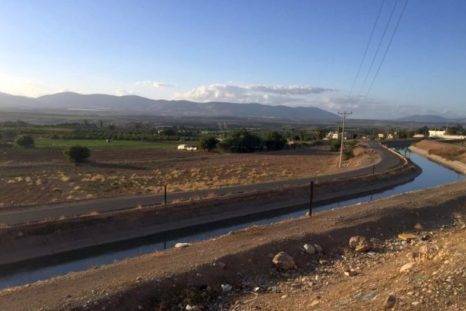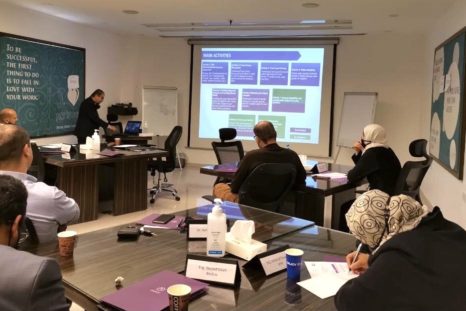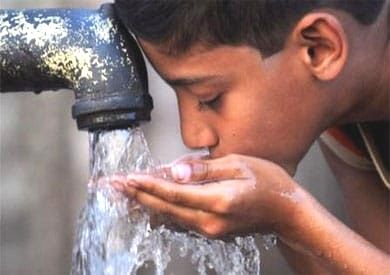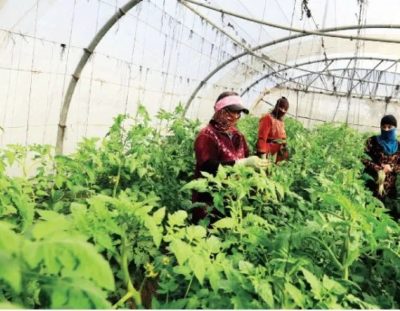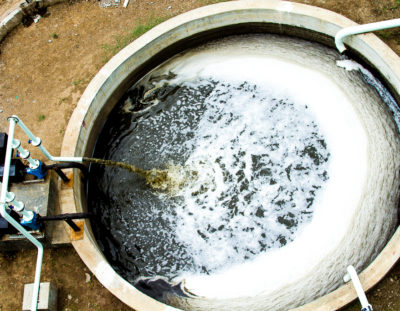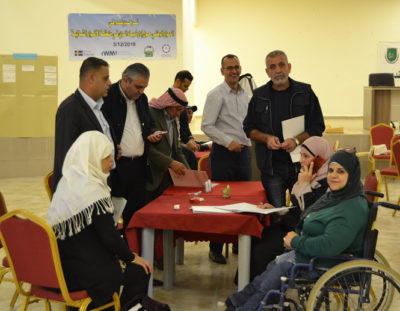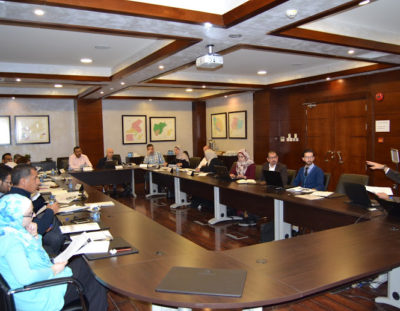Jordan
February 3, 2022Jordan is one of the MENA countries facing severe water shortages. The rampant increase in water demand by the municipal sector and the large consumptive use of water by agriculture are definitely beyond the country’s water budget.
September 7, 2021Women and girls make up half of the targeted communities’ populations, yet the water reuse issue is often silent toward the gendered needs, interests, and roles in local communities in how it is planned, implemented, and managed.
August 25, 2021Jordan is the second most water scarce country in the world. Jordan’s annual renewable water resources are less than 100 m3 per person, significantly below the threshold of 500 m3 per person which defines severe water scarcity. While more than 98% of the population has access to an improved water source, only 93% access a safely-managed source and 86% to a piped network.
May 18, 2021The ReWater MENA project held The 4th Steering Committee (SC) meeting in Jordan on 7 April 2021, in partnership with the Royal Scientific Society (RSS). The project aims to expand safe reuse of treated wastewater in the Middle East and North Africa (MENA) region, to cope with growing population, socio-economic development and climate change.
March 22, 2021ReWater MENA project in partnership with Arab Countries Water Utilities Association (ACWUA), organized a series of training workshops on the Safe Use of Wastewater in Jordan. The workshop aims to build and strengthen the capacities of the stakeholders and participants in the field of safe use of wastewater through conducting a series of training courses in Jordan, Egypt and Lebanon under the topics of reuse technologies, economic models for reuse projects, reuse safety plans, reuse governance, public acceptance and gender integration in reuse interventions. In addition to raising awareness and introducing the reuse concept in the region as well.
February 20, 2021The ReWater MENA Project: More and Safer Water Reuse in the Middle East and North Africa, implemented by the International Water Management Institute (IWMI), in cooperation with the Arab Countries Water Utilities Association (ACWUA) are organising a training workshop, in the framework of a series of regional training workshops under the title “Safe Use of Wastewater”.
January 27, 2021A call to develop the role of women in developing the irrigation and agricultural sectors.
June 4, 2020Antimicrobial resistance (AMR) also known as the silent pandemic, is a serious global health threat and low- and middle-income countries are likely to be the most affected in terms of economic burden and public health.
January 16, 2020On Tuesday the 3rd of December 2019, ReWater MENA project carried out the second National Learning Alliance in Jordan. The NLA took place at the premises of a Community Based Organization (CBO) in the Northern Jordan Valley, where a group of approximately 25 diverse stakeholders were invited to participate. The invited stakeholders were representatives presenting; farmers from the Northern Jordan Valley, German Corporation for International Cooperation (GIZ) in Jordan, Royal Scientific Society (RSS), Jordan Valley Authority, the Ministry of Agriculture, the Arab Countries Water Utilities Association (ACUWA) and the Ministry of Environment.
December 22, 2019Jordan has a range of successful water reuse projects that could inspire other countries. Experts from the ReWater MENA project shared these, as they embark on a plan to expand reuse models in Wadi Assir and the Northern Valley of Jordan.
February 3, 2022
Jordan is one of the MENA countries facing severe water shortages. The rampant increase in water demand by the municipal sector and the large consumptive use of water by agriculture are definitely beyond the country’s water budget.
September 7, 2021
Women and girls make up half of the targeted communities’ populations, yet the water reuse issue is often silent toward the gendered needs, interests, and roles in local communities in how it is planned, implemented, and managed.
August 25, 2021
Jordan is the second most water scarce country in the world. Jordan’s annual renewable water resources are less than 100 m3 per person, significantly below the threshold of 500 m3 per person which defines severe water scarcity. While more than 98% of the population has access to an improved water source, only 93% access a safely-managed source and 86% to a piped network.
May 18, 2021
The ReWater MENA project held The 4th Steering Committee (SC) meeting in Jordan on 7 April 2021, in partnership with the Royal Scientific Society (RSS). The project aims to expand safe reuse of treated wastewater in the Middle East and North Africa (MENA) region, to cope with growing population, socio-economic development and climate change.
March 22, 2021
ReWater MENA project in partnership with Arab Countries Water Utilities Association (ACWUA), organized a series of training workshops on the Safe Use of Wastewater in Jordan. The workshop aims to build and strengthen the capacities of the stakeholders and participants in the field of safe use of wastewater through conducting a series of training courses in Jordan, Egypt and Lebanon under the topics of reuse technologies, economic models for reuse projects, reuse safety plans, reuse governance, public acceptance and gender integration in reuse interventions. In addition to raising awareness and introducing the reuse concept in the region as well.
February 20, 2021
The ReWater MENA Project: More and Safer Water Reuse in the Middle East and North Africa, implemented by the International Water Management Institute (IWMI), in cooperation with the Arab Countries Water Utilities Association (ACWUA) are organising a training workshop, in the framework of a series of regional training workshops under the title “Safe Use of Wastewater”.
January 27, 2021
A call to develop the role of women in developing the irrigation and agricultural sectors.
June 4, 2020
Antimicrobial resistance (AMR) also known as the silent pandemic, is a serious global health threat and low- and middle-income countries are likely to be the most affected in terms of economic burden and public health.
January 16, 2020
On Tuesday the 3rd of December 2019, ReWater MENA project carried out the second National Learning Alliance in Jordan. The NLA took place at the premises of a Community Based Organization (CBO) in the Northern Jordan Valley, where a group of approximately 25 diverse stakeholders were invited to participate. The invited stakeholders were representatives presenting; farmers from the Northern Jordan Valley, German Corporation for International Cooperation (GIZ) in Jordan, Royal Scientific Society (RSS), Jordan Valley Authority, the Ministry of Agriculture, the Arab Countries Water Utilities Association (ACUWA) and the Ministry of Environment.
December 22, 2019
Jordan has a range of successful water reuse projects that could inspire other countries. Experts from the ReWater MENA project shared these, as they embark on a plan to expand reuse models in Wadi Assir and the Northern Valley of Jordan.

